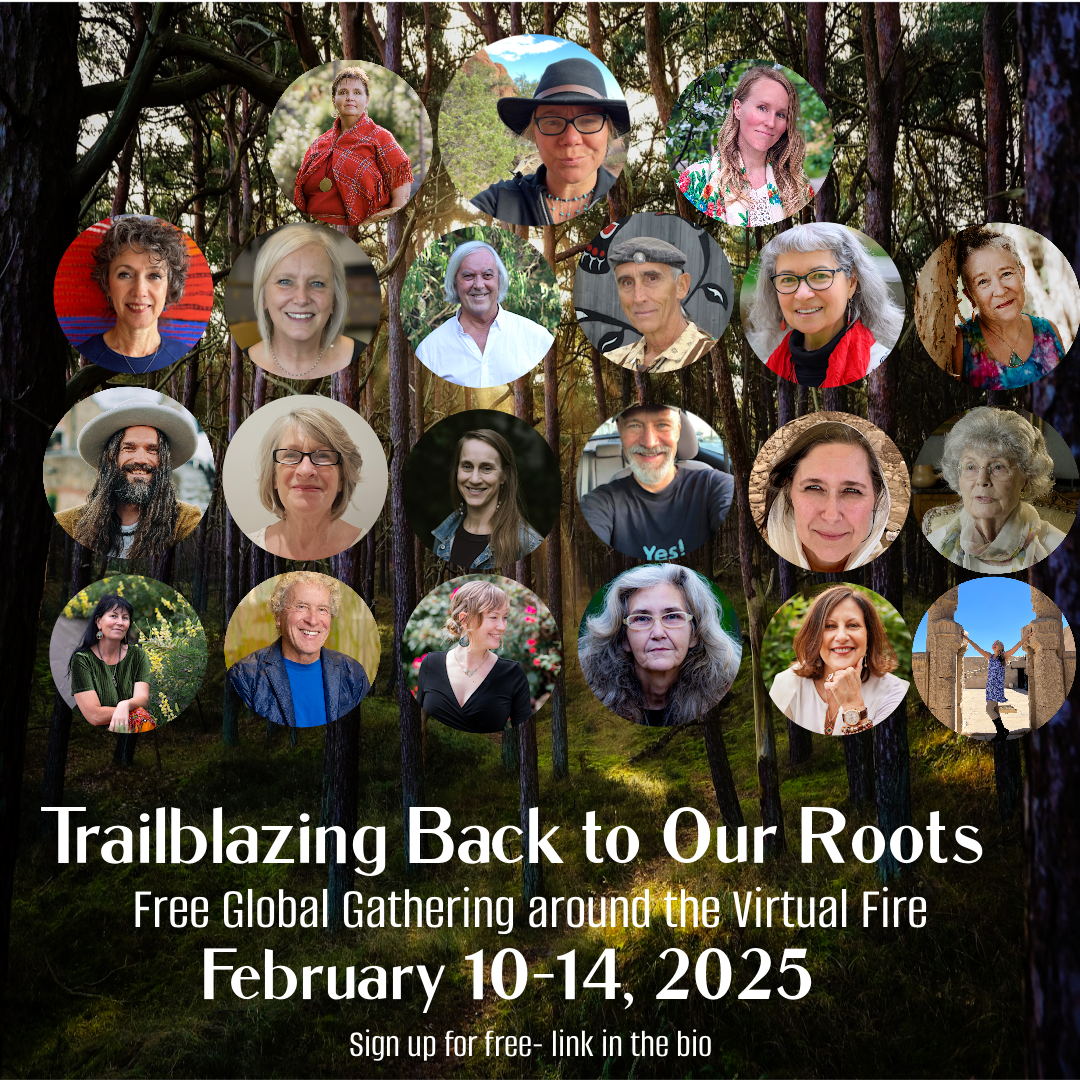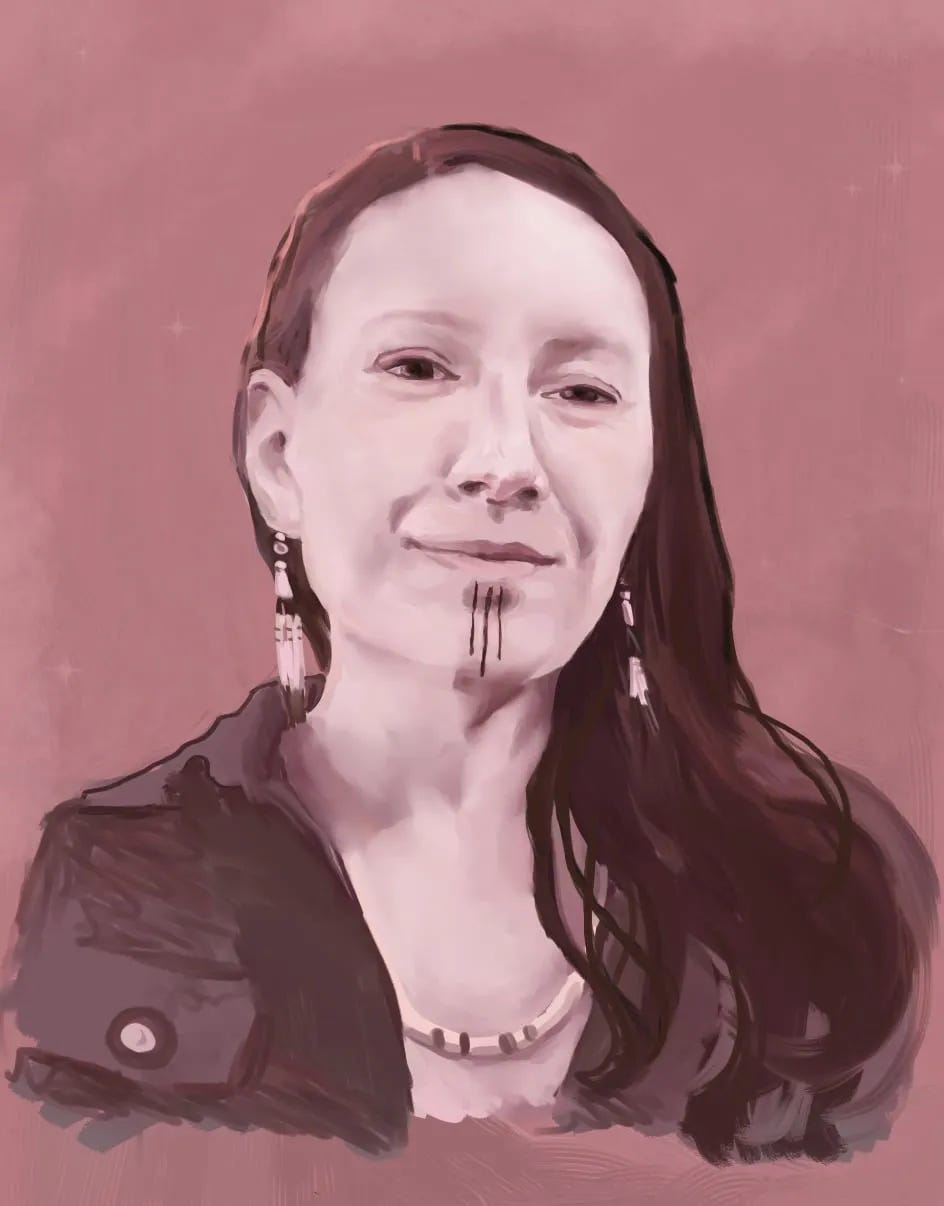Interview with Kimberly Anne Johnson re: Cultural Identity, Ancestry and White Privileges
I met Kimberly Anne Johnson in 2024 through our shared connection with the Orphan Wisdom School. We’ve become fast friends ever since and it was a joy to record this podcast with her.
Fellow Orphan Wisdom Scholar, and founder of Marketing for Hippies, Tad Hargrave dives deep with Kimberly into his ever-evolving relationship to whiteness and ancestry.
They discuss Tad’s journey into exploring his ancestral roots, language and cultural identity, as well as Kimberly and Tad’s shared rites of passage experiences doing anti-racism work.
Tad shares how he initially felt disconnected from indigenous cultures, but found deep resonance exploring his own heritage, particularly his Scottish Gaelic ancestry.
The two discuss the polarities of self-loathing and self-glorification amidst contemporary white activists of both the left and right, and the broader implications of whiteness and cultural identity for white individuals.
They touch on the importance of considering both privileges and poverties when it comes to whiteness, and also consider the challenges and complexities faced by white people in navigating issues of privilege, guilt when trying to meaningfully engage with marginalized histories and communities.
Overall, the conversation delves into the nuanced and often difficult process of reclaiming one's cultural heritage and identity as a white person, and ends on a consideration of how to creatively and meaningfully approach speaking the colonizer tongue of English.
What you’ll hear:
Tad’s intro to anti-racism and youth organizing work in the Bay Area
Tad found himself pushing up against something in anti-racist/white supremacy trainings
What is the role of self-loathing in anti-racism trainings?
Tad found admiration toward indigenous rituals, but unlike some white peers, didn’t feel drawn to doing more work with indigenous cultures
Something changed when Tad began learning his indigenous language
Tad came to understand whiteness as a cover for something
Whiteness is a kind of forgetting
Can a white person participate in a indigenous ritual? Yes, but always as a guest and with consideration for the impact their presence might be having on that community
Recognizing that whiteness was trouble, that it was a kind of poverty
Tad found he no longer was so anxiously seeking approval from indigenous people and people of color, which he recognized as another form of taking
The importance of finding rootedness in ancestral story
Kim discusses her experience in urban education in Chicago and studying under Michael Eric Dyson
Kim found she was often comparing her ancestor grief to Black peers
Kim has found Canada’s links to the older world to be more apparent than the United States
Unpacking whiteness is an empty box - there’s nothing there.
Where do white people go for culture? Often Black culture in North America
You can’t start with shame - you have to remind people who they came from
Peter Levine’s idea that you don’t, in locating feelings in the body, rest in what’s good and stay comfortable; but you also don’t stay in the bad and turn to ash.
For white people there is no “good” place to go connected to the term white- it’s discomfort all the time.
A polarizing time - one end of the spectrum is MAGA which reinforces white supremacy/entitlement the other end is leftist positive reinforcement for self-loathing, guilt, and shame.
White privilege gets conflated with cultural appropriation
The belief that deep down you are bad is a non-indigenous worldview - it’s a Christian one.
A rite of passage in a certain way to be so different than the rest of a room of people.
There is privilege in white innocence, wide-eyed and curious about other worldviews, but it is not one that you come out the other side of without recognizing cultural poverty.
There are double binds of contemporary identity politics discourse - despite the intention to advocate for another group of people, there is also anticipated criticism for participating in culture or movement that is not your own.
After an event, there are lines of young people paralyzed by guilt about being white, male, or part of the settler-colonial class.
There’s a lot of learning that can happen if you look back to why people left, further than just North American history.
Self-loathing is a collapse onto oneself and self-glorification if a puffing up/posture on a very dark history of genocide, slavery, and racism - they aren’t opposites - they are two sides of the same coin.
Dominant society has a tendency to co-opt, and possess everything that is holy.
There is no movement that isn’t co-opted by a dominant society - BLM, Feminism, Indigeneity
Corporations co-opt every movement without changing their practices - the enemy is that machine.
Wendell Berry - live as a machine or live as a creature?
Whiteness is a construct of empire.
How do you make a living when you want to opt out of empire, late-stage capitalism and try and work on a more human scale?
How to find or make the village? Leaving more than you had for the next generation.
The origins of a conception of whiteness is privilege - but as you go further there are also poverties.
At Orphan Wisdom School Tad saw something not just preserved, but practiced
How do we not only preserve ancestral culture but also practice it?
What does it mean to make culture in the times and places we are living?
Resources
Martin Prechtel’s book: Rescuing the Light
I’ll be presenting in this but the whole thing is worth it just for the appearance of Stephanie Mackay.
All the money raised from your pledges to this Substack go to support the work of indigenous, cultural activist Kakisimow Iskwew.
We are offering our Briar Rose & The Indigenous Memory of Mother Europe in a variety of formats including live, four-hour sessions in BC and Alberta.
She’s also offering her own Digging Roots cross cultural programs.
Learn more, get tickets or join the email list at the link below.







